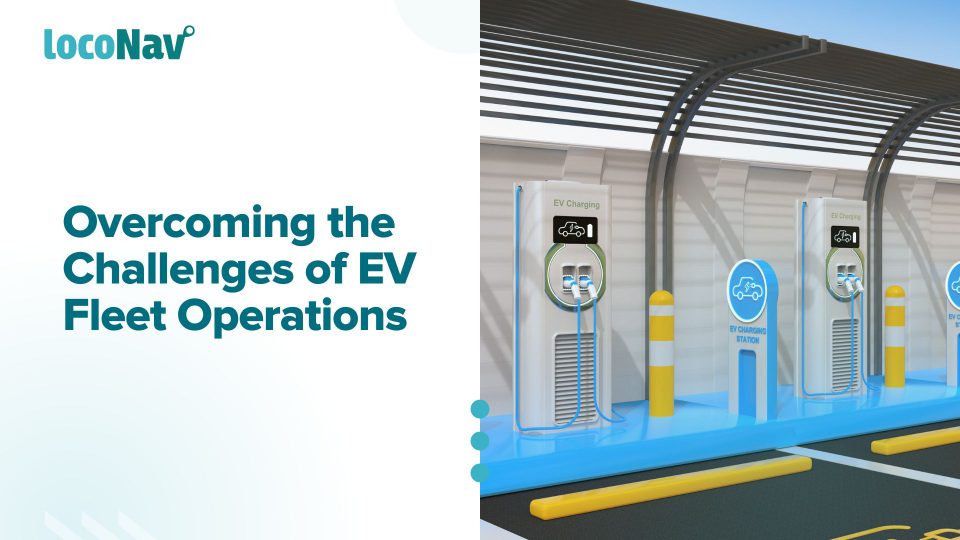

The transition to electric vehicles (EVs) in fleet operations represents a monumental shift towards sustainability and efficiency. However, with innovation comes challenges. In this blog, we’ll dive into the world of EV fleet operations, exploring the challenges faced by businesses in making this transition and the solutions that pave the way for a successful and sustainable electric fleet.
Addressing the Challenges that EV Fleet Operations Face
For every challenge that arises, there’s a solution waiting to be discovered. The world of EV fleet management is filled with innovative approaches, technologies, and strategies that are revolutionising how businesses operate their fleets. These solutions not only help overcome the hurdles but also pave the way for a future where EVs are at the forefront of sustainable transportation.
- Navigating the EV Charging Infrastructure Challenge
Solution: Strategic Charging Infrastructure Deployment
One of the primary hurdles in EV fleet operations is the establishment of a reliable charging infrastructure. EVs need a consistent and accessible network of charging stations. Fleet managers must strategically deploy charging infrastructure at depots and along routes to ensure vehicles can be charged conveniently and efficiently. - Overcoming Range Anxiety
Solution: Range Optimization and Route Planning
Range anxiety, the fear of running out of charge before reaching the destination, is a real concern for EV fleet managers. Advanced telematics and route optimization tools help in planning routes that consider the range of EVs, ensuring vehicles reach their destinations with charge to spare. - Balancing Vehicle Costs
Solution: Total Cost of Ownership (TCO) Analysis
While EVs have lower operating costs, their upfront purchase price can be higher than traditional vehicles. Fleet managers need to conduct a comprehensive TCO analysis, factoring in purchase price, fuel savings, maintenance costs, and incentives to make informed decisions about EV adoption. - Optimising Charging Patterns
Solution: Smart Charging Management
Efficient charging is crucial for EV fleet operations. Smart charging management systems allow fleet managers to schedule charges during off-peak hours when electricity rates are lower. Additionally, they can remotely monitor charging progress and adjust schedules as needed. - Data Management and Analysis
Solution: Advanced Fleet Management Software
Managing the data generated by EVs can be overwhelming. Advanced fleet management software streamlines data collection and analysis, providing insights into vehicle performance, energy consumption, and charging patterns. This data-driven approach helps in optimising fleet operations. - Maintenance and Repairs
Solution: Proactive Maintenance Scheduling
EVs have fewer moving parts than traditional vehicles, but maintenance is still essential. Fleet managers can implement proactive maintenance schedules based on vehicle diagnostics and sensor data to prevent breakdowns and reduce maintenance costs. - Employee Training
Solution: Driver Training Programs
Transitioning to EVs requires drivers to adapt to new technologies and driving habits. Driver training programs educate drivers on EV operation, charging procedures, and energy-efficient driving practices to maximise range. - Environmental Impact Tracking
Solution: Sustainability Reporting Tools
Businesses committed to sustainability need to track and report the environmental impact of their EV fleet operations. Sustainability reporting tools help quantify emissions reductions, showcasing the positive environmental effects of transitioning to EVs.
Thriving in the EV Fleet Landscape
While challenges exist, the solutions available today empower businesses to thrive in the EV fleet landscape. Strategic charging infrastructure, route planning, TCO analysis, smart charging, data management, proactive maintenance, driver training, and sustainability reporting are the building blocks of successful and sustainable EV fleet operations. With the right strategies and tools, businesses can not only overcome challenges but also embrace the numerous benefits of electric vehicles, from reduced operating costs to a greener and more sustainable future.